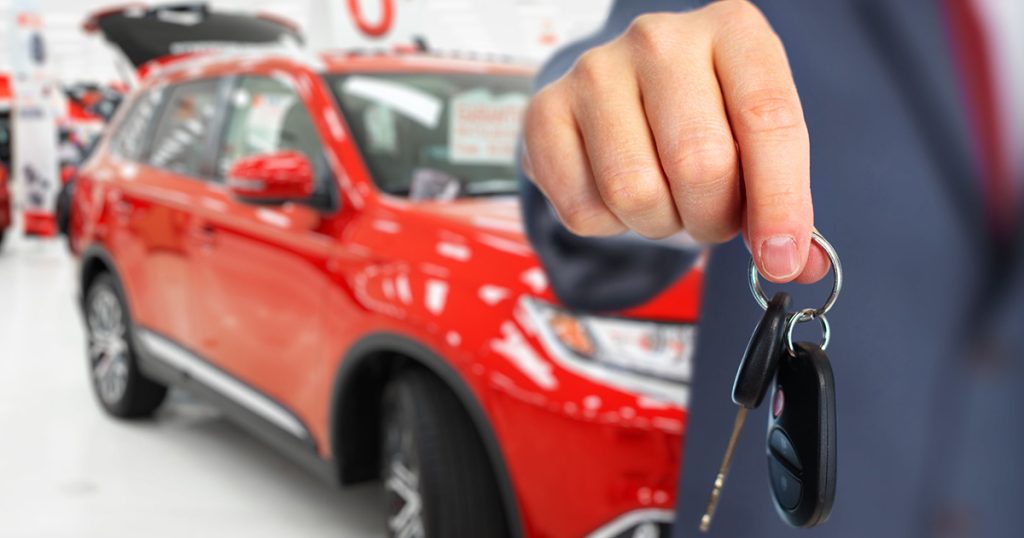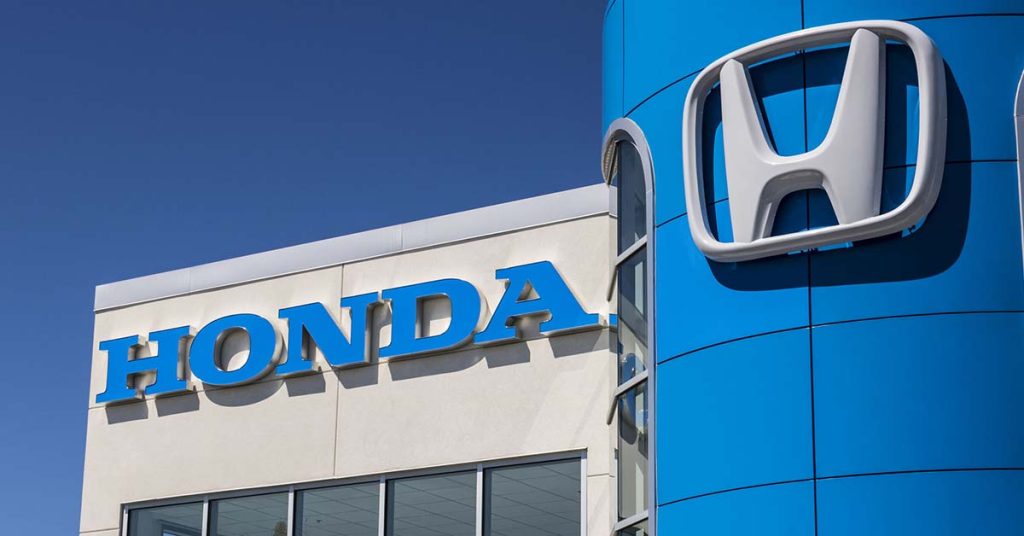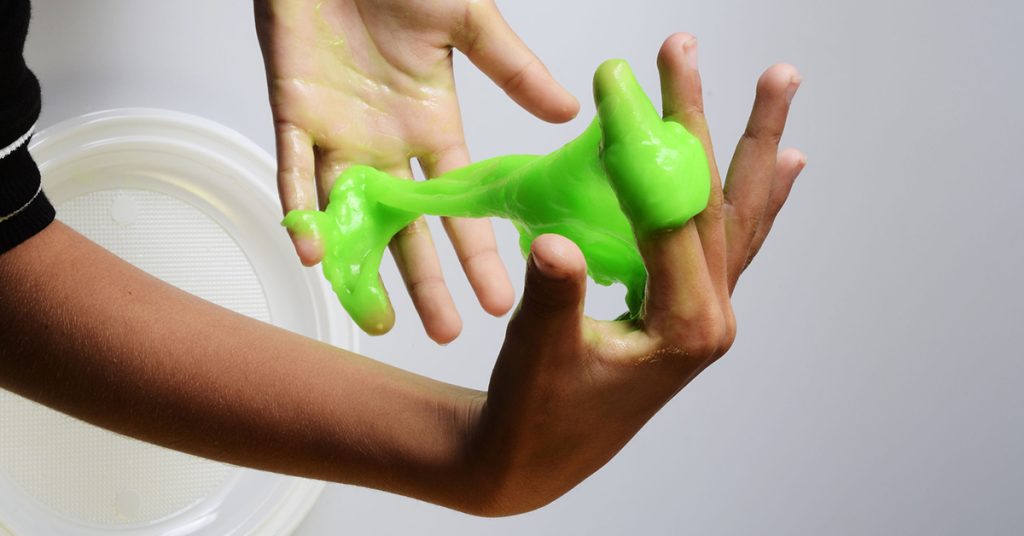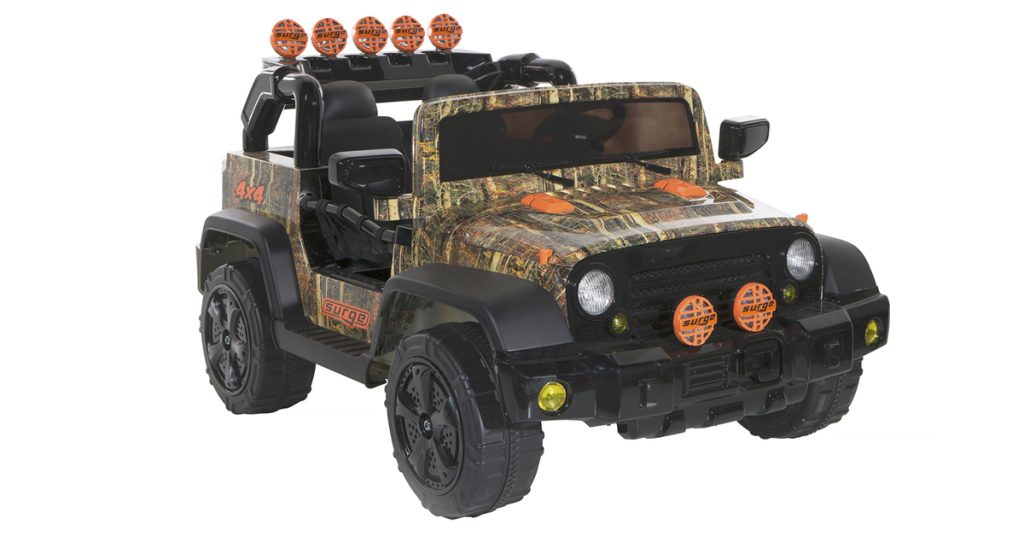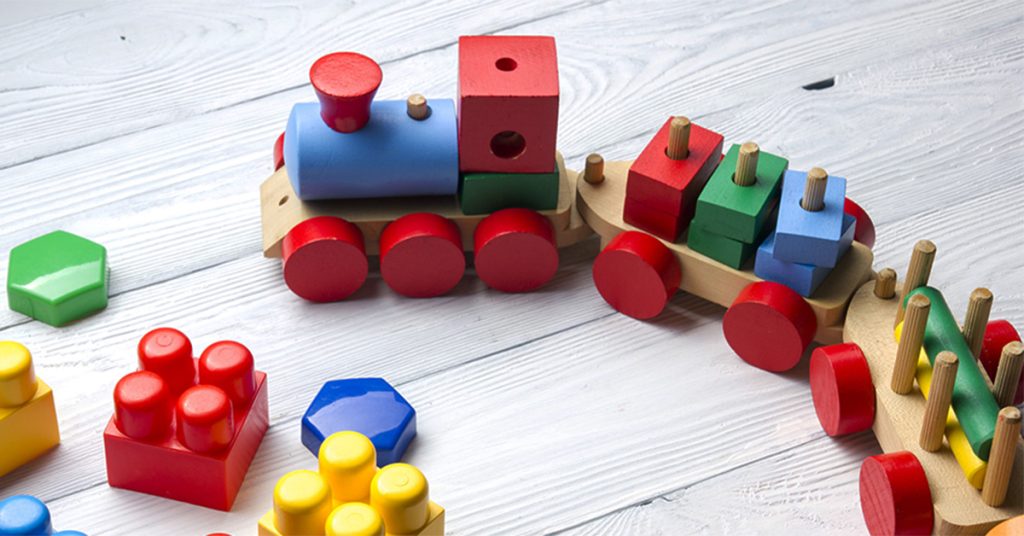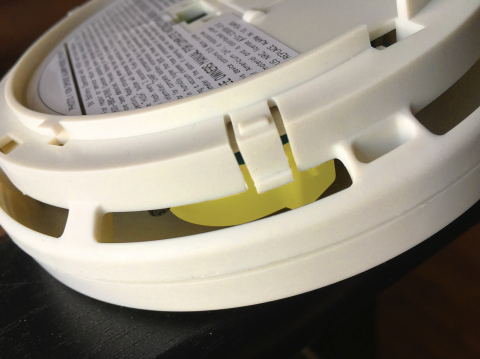Products Liability
Product Recalls and Warnings As Massachusetts Sends Children Back to School

Check your package to make sure it’s safe and contains what you ordered. That’s one of several warnings about product safety as students head back to school in Massachusetts.
Parents, as school begins, there are good reasons to double check your child’s backpack, daycare program and dorm room, as well as online purchases. There have been several recent recalls and news reports about unsafe products, providing warnings for children of all ages.
Dangerous Products on Amazon. It’s convenient to place a quick order on Amazon and see the package arrive in no time. But a Wall Street Journal investigation has found the retailer is actually selling thousands of unsafe products. These products have been declared unsafe by federal agencies, are deceptively labeled or are banned by federal regulators. The Journal’s investigation documented 4,152 dangerous products, including toys and medications, according to news reports.
Amazon draws the majority of its business from third-party merchant sales and the report questions Amazon’s oversight of these sellers. Meanwhile, the company has reportedly removed some of the products and said it is committed to consumer safety, investing over $400 million toward these efforts in 2018.
Always do your research when making online purchases and open packages as soon as they arrive. Check that the packaging matches what appears online. Parents should carefully inspect the age recommendations and take inventory of unexpected pieces and parts that could cause choking and other injuries.
Contigo Water Bottles. Contigo has recalled 5.7 million of its Contigo Kids Cleanable Water Bottles, saying they can detach and pose a choking hazard. The Chicago-based company has received 149 complaints, including 18 reports of children found with the detached spout in their mouths. Contigo will provide a free replacement lid for the products. Read more.
Infant Sleepers. Fisher-Price issued a product recall for the Fisher-Price Rock ‘n Play sleepers back in April. But the unsettling news is some of the recalled cribs are still in use. In a survey of 376 daycare centers, one in four were still using at least one of Fisher-Price’s recalled sleepers, according to USA Today. This report just came out in the last few days.
Parents please read this article and talk to your child’s daycare provider. Fisher-Price recalled the sleepers following 10 deaths. The Consumer Product Safety Commission is now aware of more than 30 infant deaths.
Battery-Operated Skateboards. We want to mention a news headline out of Ohio because while it’s several states away, it provides an important warning for Massachusetts parents of college students. On Tuesday, a battery-operated skateboard sparked a 5th floor dormitory fire at the University of Cincinnati, causing a reported $20,000 in damage to Calhoun Hall, a 12-story structure housing hundreds of students. Fortunately, no injuries were reported. Officials have not identified the product which caused the fire, but the incident is a reminder that dangerous products can have a far more devastating effect in college housing. Read and follow the college’s guidelines on products which are not permitted.
Stay Informed About Product Recalls
Because there is nothing more critical than your child’s safety and well-being, we urge you to check the Consumer Product Safety Commission website to learn about other recent recalls. To stay informed, you can sign up for regular email alerts about product recalls or visit the CPSC website periodically.
Contact a Boston Product Liability Attorney
Breakstone, White & Gluck has represented those injured by defective products in Massachusetts for more than 25 years. We periodically share information on product recalls and unsafe products to help prevent injuries before they happen.
If you or a loved one have been injured by a defective product, seek immediate medical attention. Preserve the product and contact an attorney to learn your legal rights.
For a free legal consultation, contact our Boston product liability attorneys at 800-379-1244 or 617-723-7676. You can also use our contact form.
Car Dealers Pushing States to Allow Sales of Recalled Used Cars With “Disclosure”
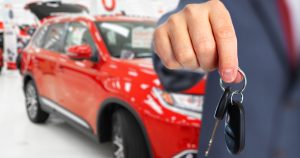
A dangerous bill has been filed in Massachusetts seeking to give used car dealers the right to sell used cars with pending recalls. Dealers would just have to provide written disclosure. Safety groups are opposed here and in other states.
The automotive industry has been pushing states to pass legislation allowing car dealers to sell used cars with open safety recalls. The industry wants to just disclose the pending recalls, rather than provide repair. Proposed legislation was the subject of a hearing at the Massachusetts State House this week. Massachusetts is the 11th state where this unsafe and anti-consumer legislation has been introduced over the past five years. Most other states have not passed the measures pushed by car dealers.
MassPIRG represented a coalition of safety organizations before the State House Joint Committee on Monday, speaking out against the bill, SB 179/HB 262, An Act further regulating business practices between motor vehicle dealers, manufacturers, and distributors. The bill was filed by Rep. Daniel J. Hunt and Sen. Marc R. Pacheco.
If approved, this proposal would allow Massachusetts car dealers to sell used cars under recall and simply provide written disclosure about outstanding repairs and defects, according to MassPIRG.
MassPIRG and its coalition strongly oppose this legislation, calling it a “serious threat to the safety of everyone who shares the roads,” and a “dangerous, profoundly anti-consumer, anti-safety, special interest bill.” It further noted there is no other recalled product that can be legally sold. You can read the coalition’s full statement here.
The proposal would weaken some of the most fundamental Massachusetts laws designed to protect consumers. Under the current laws, car dealers must affirmatively warrant that used cars are safe to operate on the roads. Dealers can be held liable for failing to comply with common law duty of care and for engaging in acts which are unfair, deceptive or negligent and result in wrongful death. Consumers have the right to recover financial losses in court or file a civil lawsuit in cases involving personal injury or wrongful death.
The Role of the Automotive Lobbying Groups
The Center for Public Integrity has teamed up with USA Today and The Arizona Republic to cover the lobbying effort by the automotive industry in the wake of the massive auto recalls. There are a number of industry groups, but the media partners report the Automotive Trade Association Executives has drafted “suggested” legislation being provided to many states. The Washington D.C.-based organization represents more than 100 executives from the regional auto dealer associations.
The media partners reported the goal was for the legislation to have two parts: one requiring manufacturers to fairly compensate auto dealers for holding onto used cars which needed repairs. The second part would allow those same auto dealers to sell recalled used cars if they disclosed repairs were needed.
Reporting on the Many Injuries
Over the last decade, drivers have suffered through recall after recall – over 280 million vehicles overall, according to the Consumer Federation of America. While many repairs have been made, the group estimates over 70 million recalled vehicles remain on the road.
As part of their coverage, the media partners have covered the stories of cars being sold multiple times after recalls and the injuries that follow.
The stories include that of Carlos Solis, a 35-year-old Texas father of two killed by a defective airbag in his Honda Accord. Solis was hit by an oncoming car as he waited to make a turn into an apartment complex outside of Houston. While his passenger was left uninjured and the vehicle suffered little exterior damage, Solis was struck in the neck by metal from the airbag. It severed his carotid artery and he died within minutes.
Solis had no warning about the defective airbag. An independent used car dealer sold the car without fixing the airbags or warning him Honda had recalled the vehicle years earlier. His family filed a civil lawsuit. Across the country, other families who lost loved ones did the same. Car dealers took notice.
Tennessee’s “Used Recall” Law
According to the media partners, legislation has been introduced in Massachusetts and 10 other states, including California, Illinois, Maryland, Missouri, New Jersey, New York, Oregon and Pennsylvania, Tennessee and Virginia.
Tennessee is one state which passed the law with the car dealers’ language intact. What happened there shows the automotive industry is reaching too far, disregarding potential injuries and deaths and harming families already in pain.
In 2014, Lara Gass, 27, died in a car crash caused by a faulty ignition switch in a Saturn Ion. GM had just recalled the safety defect a few weeks earlier. Her parents approached the local state legislator, asking him to introduce “Lara’s Law,” which would have banned the sale of recalled used cars.
The state lawmaker consulted with a local lobbyist from the Tennessee Automotive Association. They edited the language, removing the sales ban. Instead, they added a requirement to disclose the auto recalls to consumers.
The Gass family stopped supporting the bill. The local lawmaker – who had received $56,000 in campaign donations from local dealers – withdrew the bill. But that wasn’t the end of it. The next year, the same lawmaker reintroduced the legislation in the state Senate with the sales ban sought by the Gass family. Another legislator introduced an identical bill in the state House. Since these were identical bills, there would potentially be little to reconcile before committees.
Neither bill moved forward, but the second lawmaker ended up helping the auto dealers add the “disclosure” language to an unrelated law regulating, of all things, rickshaws. There was no sales ban as the Gass family had sought. Republican Gov. Bill Haslam signed “The Motor Vehicle Recall and Disclosure Law” on May 5, 2017.
“Lawmakers were more influenced by lobbyists than they were by citizens trying to do the right thing,” Jay Gass told the media outlets.
The one exception in the Tennessee law is car dealers cannot sell used recalled cars with special notices, including “do-not-drive recalls” or “stop-sale orders.” But these are very rarely issued.
Federal Legislation May Be Ahead
Hopefully, no other state will have to consider this type of anti-consumer legislation. Last month, U.S. Sen. Edward Markey (D-Massachusetts) and U.S. Sen. Richard Blumenthal (D-Connecticut) introduced federal legislation that would ban all sales, leases and loans of used cars with open recall notices. This would be a uniform law protecting car buyers, drivers and road users under one standard in all 50 states.
Boston Product Liability Lawyers – Boston Car Accident Lawyers
With more than 100 years combined experience, Breakstone, White & Gluck and our Boston personal injury lawyers are experts in handling product liability cases involving defective parts in cars and trucks. We represent clients in all types of product liability cases, including those involving defective construction equipment, fitness equipment, toys and consumer products. Our attorneys provide plaintiff’s representation in Boston, Cambridge and across Massachusetts.
If you have been injured, learn your legal rights. For a free consultation, contact our attorneys at 800-379-1244 or 617-723-7676 or use our contact form.
Kids II Infant Sleepers, Linked to Deaths of 5 Infants
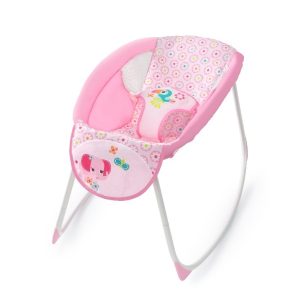
Kids II has recalled nearly 700,000 rocking sleepers, just two weeks after the stunning Fisher-Price recall.
There is a new and frightening warning out about infant sleepers. This time, families are being urged to stop using Kids II infant rocking sleepers because they have been linked to the deaths of five infants. Kids II recalled its entire line of infant rocking sleepers on Friday – approximately 36 models and 694,000 individual products – just two weeks after the stunning Fisher-Price recall.
Fisher-Price recalled 4.7 million of its Rock ‘n Play sleepers on April 12, after an investigation linked the product to more than 30 deaths over 10 years. This means that combined, the two companies sold more than 5.3 million defective sleepers to unknowing families.
Kids II introduced its sleepers in March 2012. Five infants have since died while using the sleepers after rolling from their back to their stomach while unrestrained or under other circumstances.
These sleepers were sold at Target, Walmart and Toys “R” Us as well as online, with a price tag of $40-$80. Parents and grandparents who own one should stop using the Kids II sleepers and contact the company for a recall or a voucher to use toward another product. Parents can call Kids II toll-free at 1-866-869-7954 8:00 a.m.to 5:00 p.m. ET Monday through Friday or visit the company’s website.
Read the Consumer Product Safety Commission’s recall notice for a full list of the recalled sleepers. One of the models was sold with Disney branding.
In the Fisher-Price case, the Consumer Product Safety Commission and the company, which is part of Mattel, initially announced the sleeper had been linked to at least 10 deaths in early April. The company said the deaths all involved children who were 3 months or older. The company’s remedy was for parents to stop using the rocker when children turned 3 months old or became capable of turning themselves over.
Soon after began the calls for a recall. Consumer Reports and the American Academy of Pediatrics (AAP) were the leading advocates in both the Fisher-Price and Kids II sleeper recalls. Both products put children in canopy-like sleeper, which can rock to music and is highly likely to move if an infant can. The AAP warns the rocking sleepers are unsafe and create a risk for suffocation and strangulation. The academy advises that infants should only sleep on flat surfaces such as cribs or bassinets. The sleeping surface should be free of soft bedding, toys and other products.
After Friday’s recall, Consumer Reports asked the Consumer Product Safety Commission if the agency intends to recall all sleepers on the market. An agency spokesperson said it continues to actively investigate sleep products and was “reassessing the product class and hazards associated with it.” Meanwhile, Mattel has announced the Fisher-Price recall will cost the company $27.3 for the quarter ending March 31, 2019. But the recall won’t entirely remove the sleeper from homes. According to Consumer Reports, Fisher-Price sells the same product in Canada, but markets it as a “soothing seat.”
About Breakstone, White & Gluck – Boston Product Liability Attorneys
Breakstone, White & Gluck is a Boston personal injury law firm which represents individuals who have been injured by unsafe products. When a product has caused injury, there should be an investigation to determine the cause, which often falls under three categories: defective design, manufacturing error or a failure to warn consumers about the potential for injury. If someone in your family has been injured by a defective product, learn your rights. Contact our Boston product liability lawyers at 800-379-1244 or 617-723-7676 or use our contact form.
After Infant Deaths, Fisher-Price Rock ‘n Play Sleeper is Recalled
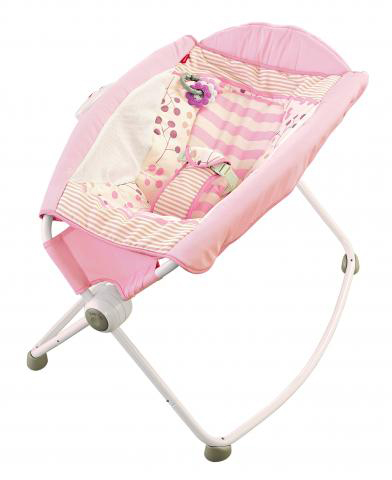
Fisher-Price has recalled its Rock ‘n Play sleeper after an investigation found more than 30 infants died while using it.
It once looked the perfect place to nap and cuddle. But this adorable product – the Fisher-Price Rock ‘n Play Sleeper – wasn’t ever safe. Fisher-Price and the Consumer Product Safety Commission (CPSC) announced the recall of 4.7 million sleepers on April 12, 2019. Parents are being urged disassemble the sleeper and stop using it. The company expects to spend the next several months processing recalls.
Prior to the company’s action, the American Academy of Pediatrics (AAP) had joined Consumer Reports in calling for the product’s removal, stating the Fisher-Price Rock ‘n Play failed to comply with its recommendations, which state infants should only sleep on flat and firm surfaces. Further, the AAP advises infants should not be left on the same surface as other bedding, toys or bumpers, which could increase the risk of infant suffocation or choking.
Fisher-Price, a division of Mattel, is asking parents to contact the company for a refund or voucher toward another Fisher-Price product. The company will offer a full refund for Rock ‘n Play sleepers purchased during the past six months.
Resources:
Fisher-Price Rock ‘n Play Recall Notice, Consumer Product Safety Commission
Mattel and Fisher-Price Recall Page for Parents
The Week of Bad Headlines for Fisher-Price
Fisher-Price and the CPSC announced the product’s recall on Friday, April 12th, following days of pressure from safety organizations. Fisher-Price had initially resisted.
On April 5, the CPSC and Fisher-Price released an initial warning and announced 10 infants had died in the Rock ‘n Play between 2015 and 2019. The infants were all 3 months or older and died after rolling over from their back to their stomach or side.
At that point, there was no recall, but parents were advised to stop placing children in the sleeper once they reach 3 months old, or earlier if they begin turning themselves over.
Days later, Consumer Reports came out with a troubling report linking the product to not 10, but 32 infant deaths since the 2009 release. The consumer watchdog called on the CPSC to immediately issue a recall of the defective product. In response, Fisher-Price said the company did not believe any of these deaths were caused by the sleeper. Rather, the company said medical and health conditions were cited as the cause in some deaths, and in other cases involved improper use of the sleeper.
Shortly after, Americans heard from the AAP: “This product is deadly and should be recalled immediately.”
Despite the AAP recommendations, Fisher-Price managed to introduce the Rock n’ Play and sold it for a decade. Before the recall, it was selling for $40 to $149 at various retailers. The product sits elevated in a canopy-like environment for sleeping and sitting and featuring a “motorized rocking motion” and musical tunes. The problem is when a baby’s head falls forward or sideways. This can block the child’s access to oxygen.
Parents should do careful research when buying children’s products. Monitor the CPSC website for warnings and recalls, as well as the Consumer Reports website. We can expect to hear more about the dangers of other sleeper products in the near future, as Consumer Reports continues its investigation. On April 11, it reported on four other child deaths linked to Kids II sleepers.
More Reading:
Fisher-Price Rock ‘n Play Sleeper Should Be Recalled Immediately, Consumer Reports
Fisher-Price Rock ‘n Play Recall, New York Times
Buying Safe Toys, Breakstone, White & Gluck Project KidSafe
Contact the CPSC About Dangerous Products and Injuries
If you are ever injured while using a consumer product, you should contact the CPSC to report the injury. The CPSC is the federal agency responsible for overseeing the recall process, releasing warnings to the public and collecting injury data. The CPSC works with manufacturers to issue product recalls.
Free Legal Consultation – Contact a Boston Product Liability Lawyer
If you have been injured, it is also in your best interests to consult a Boston product liability attorney. At Breakstone, White & Gluck, our Boston attorneys have represented clients injured by defective products, medical devices and vehicles. Prompt investigation is necessary in product liability cases and our attorneys are known for our thorough, detailed and capable investigation.
For a free legal consultation, contact our lawyers today at 800-379-1244 or 617-723-7676 or use our contact form.
FDA Proposes Changes to 510(K) Medical Device Approval Process
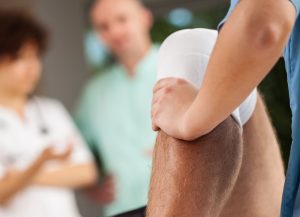
The Attune Knee System was approved through the FDA’s 510(K) process. Breakstone, White & Gluck is currently representing patients who have suffered Attune knee replacement failures. Free Consultation: 800-379-1244.
In 2019, the public can expect to learn more about the Food and Drug Administration (FDA)’s plans for improving the 510(K) approval process for medical devices. Instead of improving the quality of life for patients, too many medical devices are causing injuries and even death. Many of these medical devices were been approved through 510(K).
Too often, we hear about medical device injuries in the news. At Breakstone, White & Gluck, our attorneys represent patients injured by defective medical devices and other unsafe products in Massachusetts and Rhode Island, from Boston to Worcester to Providence. Our attorneys know each news story represents many more patients who have been injured.
But just how many? More than 1.7 million people have suffered injuries from medical device failures over the past decade, according to a 2018 Associated Press report. Nearly 83,000 people died. These are giant and unbelievable numbers, especially when you consider that medical devices undergo a federal approval process which should protect patients.
How the FDA 510(K) Process Works
Since 1976, manufacturers have been able to short-cut the FDA approval process. If a manufacturer can demonstrate their medical device is “substantially equivalent” to an approved medical device, they can apply through the 510(K) approval process. The manufacturer has to submit paperwork, explaining the similarities between medical devices, but they are not required to conduct additional clinical testing – even for devices which are surgically implanted such as knee and hip replacements.
FDA Proposal Calls for 10-Year Restriction
While the FDA has long been committed to the 510(K) approval process, many have argued the process needs to be more focused on patient safety. After many years of complaints, the FDA is now proposing a change to only allow manufacturers to use the 510(K) approval process when they base their applications on medical devices approved in the past 10 years.
The FDA said this change will modernize the process and ensure products and technologies continue to improve.
Here is a point that supports change. While there are 4,000 medical devices in the agency’s database, just six types have caused 25 percent of all injuries between 2008 and 2017. These include defective hip replacements, including the DePuy metal-on-metal and other hip implants, accounting for more than 103,000 injury reports. The other medical devices: spinal stimulators, surgical mesh, defibrillators, implanted insulin pumps and insulin pumps with sensors. These figures also come from the Associated Press.
Over the next few months, the FDA is taking public comment on other questions, such as should there be a public list of devices or manufacturers who make technologies that rely on devices approved more than 10 years ago? Or what would be an appropriate time period? Read more: FDA’s questions for the public.
Common Medical Device Defects and Injuries
Breakstone, White & Gluck specializes in representing those injured by medical device failures in Boston, Worcester and across Massachusetts and Rhode Island. If you have been injured, our attorneys can advise you of your legal rights for seeking compensation. Our goal is to help clients obtain prompt medical treatment and then, full compensation for financial losses, such as lost wages. Patients may also be entitled to damages for pain and suffering.
Our lawyers are experienced in handling medical device claims involving:
Knee implants. One knee replacement with a high rate of failure is the Attune Knee System, which is stabilized by a cement fixture. Patients can suffer physical pain when the cement loosens.
Hip implants. DePuy issued a recall for its ASR XL Acetabular System metal-on-metal hip implants in 2010. But many other implants followed, including the Stryker Rejuvate Modular and ABG II Modular-Neck Hip Stems, Zimmer and Smith & Nephew. Read more about what to do if you have a defective hip implant.
Surgical mesh. Patients have suffered complications after being treated with surgical mesh implants during hernia repair procedures. There have been so many injuries that the FDA has issued an advisory warning patients about the severe pain and long-term complications that can result. One type of surgical mesh which has caused injuries is the Ethicon Physiomesh® Flexible Composite hernia mesh.
Boston Medical Device Injury Lawyers – Free Legal Consultation: 800-379-1244
Learn your legal rights if you have been injured as a result of a medical device failure. For a free legal consultation, contact Breakstone, White & Gluck at 800-379-1244 or 617-723-7676 or use our contact form.
‘Tis the Season for Product Recalls and Returns
‘Tis the season to shop for holiday toys and gifts. Or to bring that product back, for a full refund or replacement?
While a record number of consumers shopped for the holidays, IKEA and Honda issued major safety recalls in November. We share an update on these recalls and continue our Project KidSafe series on toy safety.
Honda Odyssey Recall. It’s a replacement part if you own a Honda Odyssey and unfortunately, you can expect to wait.
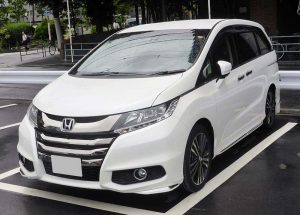
107,000 Honda Odyssey vans because of a problem with the power doors. Photo: Wikipedia.
Just in time for the Thanksgiving drive, Honda recalled 107,000 Honda Odyssey vans because the power doors may improperly latch and can potentially open while the vehicle is in operation. Honda has not received any reports of injuries.
Honda recalled vehicles from the 2018 and 2019 model years on November 20, 2018. The automaker called on drivers to request replacement power sliding door kits through an authorized Honda dealer. Replacement parts should arrive at licensed dealers in late December.
Honda advised owners they can disable the power door. Use manual operation until replacements arrive.
This is not the first recall involving Honda Odyssey vans. Last year, 900,000 Odyssey models from 2011 – 2017 were also recalled. In that case, Honda reported second-row seats could tip forward if not properly latched. Tipping could happen during moderate or heavy braking if seats were not properly latched after adjusting side-to-side or reinstalling a removed seat. Honda received 46 reports of minor injuries.
To learn more about the recalls, visit the Honda website.
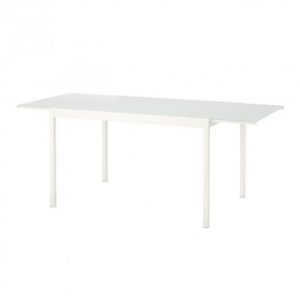
IKEA recalled these dining room tables in November 2018 because the dining surface can collapse. Return for a refund.
IKEA Tables. It is a return if you have an IKEA table. The retailer recalled 8,200 dining tables in the U.S. and 1,500 in Canada on November 27, 2018, warning the table’s glass extension leaf can detach and drop.
This has already happened three times. IKEA reports one minor injury, requiring no medical attention.
These tables sold at IKEA stores and online from February 2017 through October 2018. They sold for approximately $300. IKEA says consumers can return them for a full refund or a replacement table. Learn more on the Consumer Product Safety Commission website.
Consumer Safety Tip: Consumers do not have to wait for the news media to report unsafe products and product recalls. You can view recalls online on the CPSC website and even sign up to receive email alerts when products are recalled. Visit the toy safety page on our website to learn how to sign up.
Not every recall is the same. The CPSC can release product recalls calling for refunds or replacements. Some products can be repaired easily. Others cannot. Consumers should pay attention to all recalls. Encourage friends and family to do the same: return and refund or replacement/repair. Another option is just remove the recalled product from your home, if it can be taken apart and discarded with care, so other children cannot reuse it.
A Decade of Toy Safety Efforts, Passage of Federal Safety Legislation to Protect Massachusetts Families
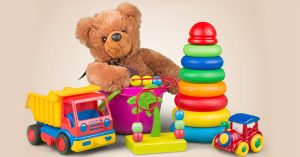 At Breakstone, White & Gluck, our Boston product liability lawyers specialize in representing those injured by defective products. Toy injuries are common, even though toys should only be safe and fun for children. It is painful to learn they can be defective or may not have been fully tested or properly labeled. Defective toys can cause serious injuries, including fingertip lacerations, burns, facial injuries and broken bones. For children under age 3, the leading hazard is toys which contain small parts and balloons which can cause choking and suffocation. Toys should be tested to see if parts can fit through the “small parts” test. Those which pass through the “small parts” cylinder should have age-appropriate warnings, which read “Choking Hazard – Small Parts. Not for Children Under 3 Yrs.”
At Breakstone, White & Gluck, our Boston product liability lawyers specialize in representing those injured by defective products. Toy injuries are common, even though toys should only be safe and fun for children. It is painful to learn they can be defective or may not have been fully tested or properly labeled. Defective toys can cause serious injuries, including fingertip lacerations, burns, facial injuries and broken bones. For children under age 3, the leading hazard is toys which contain small parts and balloons which can cause choking and suffocation. Toys should be tested to see if parts can fit through the “small parts” test. Those which pass through the “small parts” cylinder should have age-appropriate warnings, which read “Choking Hazard – Small Parts. Not for Children Under 3 Yrs.”
Among older children and teens, Hoverboards and riding toys are popular holiday gifts. These toys have injured and killed in recent years, with Hoverboards also burning down homes as the lithium ion batteries charged. Before you buy, check the CPSC’s safety standard for Hoverboards (UL2272 safety standard). Remember the standard is still new, first issued in 2016, and not an endorsement for safety. In fact, the CPSC has strongly urged consumers not to buy Hoverboards, as has W.A.T.C.H., the Boston-based non-profit which included Hoverboards on its “10 Worst Toys” lists.
Taking the time to check if a toy you want to buy – or already own – has been recalled can prevent injuries and save your loved ones’ lives. The number of toy recalls varies by year, but there are always recalls. So far in 2018, we have seen child-related recalls of dolls, toys with loose wheels, clothing, toys with excessive lead limits and go karts. In 2017, the CPSC reported 28 recalls of individual products. Over the past 10 years, 2008, 2009 and 2010 have seen the most toy recalls, with the highest number coming in 2008, when 172 toys were recalled, according to the CPSC.
This was the first year of major safety changes, including passage of the landmark Consumer Product Safety Improvement Act (CPSIA) of 2008. For the first time, toys had to be tested to ensure compliance with the law and the CPSC was granted greater authority in overseeing toy safety standards. Federal limits were also imposed on toys containing lead and other chemical hazards. In December 2008, Mattel and subsidiary Fisher Price agreed to pay $12 million to Massachusetts and 38 other states over events leading to recalls of toys with lead levels above the new federal limit.
Beyond toys, children’s products are also subject to frequent recalls, including names like Graco car seats and Britax strollers. This is a frightening fact, because these products carry children.
Breakstone, White & Gluck writes about toy safety as part of our Project KidSafe campaign, with a goal of preventing toy-related injuries. Our recent blogs:
Trouble in Toyland Report Offers Valuable Warnings For Holiday Shoppers
Hitting the Safety Brake: A Warning About Battery-Operated Ride-On Toys
Trouble in Toyland Report Offers Valuable Warnings For Holiday Shoppers
There is “Trouble in Toyland.” For the 33rd year, U.S. PIRG has released its annual survey on toy safety. This is a widely respected survey, which over the years has dispensed valuable information to protect children and families. The survey has led to the recall of more than 150 unsafe toys.
Highlights from this year’s report:
- Toys which have been recalled for safety issues over the past year
- Toys which contain high levels of toxic materials, such as boron
- Toys which do not meet labeling requirements
- Toy regulations
Toy recalls
Over the past year, the Consumer Product Safety Commission (CPSC) announced more than 40 recalls of toys and children’s products, such as wagons and strollers. These recalls represent 2.7 million units. During its survey, the group did not find any recalled toys or products still being sold. This is good news for consumers, but you still need to check products for yourself by going online. You can visit the CPSC Recall list.
You can also check the U.S. PIRG’s “Trouble in Toyland” report, so you can be informed while you shop or to see if you have any recalled toys in your home (See Appendix 4, page 29). Many people do not hear about recalls so it’s worth checking.
If you find a recalled product, you can contact the manufacturer for a refund or a repair. In some cases with inexpensive toys, it may be best just to discard it from your home in a safe way. Move onto other toys.
U.S. PIRG has long advocated for improvements to the CPSC’s recall system. One concern is that companies are not required to report how many consumers actually return products for repairs or refunds.
Toxic Materials
The report focused on two toxic materials in toys: Lead and boron.
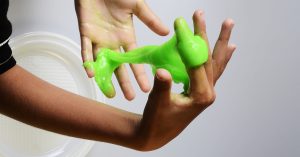
Beware of Slime: U.S. PIRG Researchers found 6 popular Slime sets which contain dangerous levels of boron.
Lead. Lead was banned from household paint, children’s products and cookware 40 years ago. But federal law states children’s products made after August 2011 can contain no more than 100 parts per million. Because lead is highly dangerous when breathed in, be careful when buying toys such as paint sets and other products. Electronic devices can contain some lead parts, as can metal components of bicycles. The American Academy of Pediatrics (AAP) recommends all products for children contain no more than trace amounts of lead (40 ppm).
Boron. Your child may be begging you to buy one of those popular slime toy sets. U.S. PIRG says you can’t trust these products are safe. Researchers found six slime products on the market had dangerously high levels of boron. One brand, “Kangaroos Original Super Cool Slime,” contained concentrations as high as 4700 parts per million (ppm).
Boron is a chemical element used mostly in glass manufacturing, pesticides, antiseptics and detergents. Children can ingest small amounts, even less than 3.68 ppm and suffer symptoms of nausea, vomiting and potentially longer term impacts on reproductive health. The Environmental Protection Agency (EPA) reports certain levels can even be lethal. Say the “Kangaroos Original Super Cool” slime has up to 4700 parts per million (ppm). Then consider that six states have made recommendations on boron limits in drinking water, non exceeding 1 ppm. It’s a frightening discrepancy. U.S. PIRG has asked the CPSC to explore setting limits on boron levels, as Canada and other countries have.
We recommend parents spend their money elsewhere this year. There are so many toys out there, which your child would enjoy without risk to their safety. Likewise, if your child plays at another friend’s home or goes to daycare, make sure the adult in charge knows you don’t want your child playing with slime sets.
| Slime Toys with Dangerous Levels of Boron |
| Kangaroos Original Super Cool Slime – Amazon – 4700 ppm |
| Kidsco Glow in The Dark Slime – Amazon, Walmart – 4600 ppm |
| Toysmith Jupiter Juice Slime – Amazon, Walmart – 1900 ppm |
| iBaseToy Fluffy Slime – Amazon – 1500 ppm |
| Haniex Soft Magic Crystal Slime – Amazon – 1400 ppm |
| Meland Fluffy Slime Amazon Boron – 1100 ppm |
| Data from U.S. PIRG “Trouble in Toyland” Report 2018. |
Labeling
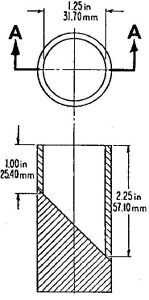
Drawing of the small cylinder test for toys. Credit: CPSC website.
Toymakers are responsible for properly labeling their products, especially those with small parts which are not intended for children under age 3. This warning is essential. Children are often putting small parts in their mouths. From 2001 to 2016, more than 110 children died this way, according to U.S. PIRG.
What’s important for consumers to know is the CPSC has a Small Parts Ban. Toys must be tested to make sure they cannot pass through a test cylinder, which has a diameter of 1.25 inches. The cylinder has a slanted bottom, opening 1 to 2.25 inches. If a toy can pass through, it must be properly labeled: WARNING: Choking Hazard-Small Parts. Not for Children Under 3 Yrs.
Researchers identified a few toys which are being sold online without age appropriate labels this year – Hatchimals and L.O.L. Surprise toys. Parents should watch and carefully inspect every purchase you make. A good rule of thumb is to open every toy well in advance of giving it to a young children. Open it out of your children’s reach, such as in a basement.
Balloons are another product which are not being labeled properly. Balloons should come with warnings that they are a potential choking hazard to children under 8 years old. Yet, 87 percent of the latex balloons on Amazon.com carried no warnings, according the survey.
Toy Regulations
As consumers, we deal with packaging, price tags and shipping dates more than regulations. But the “Trouble in Toyland” report shares three important regulations on page 17:
- Small Parts Ban (1979)
- The Child Safety Prevention Act of 1994
- The Consumer Product Safety Improvement Act of 2008
Read the 2018 “Trouble in Toyland” report.
About Breakstone, White & Gluck
Free Legal Consultation: 800-379-1244
Breakstone, White & Gluck of Boston specializes in handling personal injury and product liability cases. This holiday season, we are committed to sharing toy safety tips as part of Project KidSafe campaign. We wish you a safe and healthy holiday season.
Learn more about our firm: www.bwglaw.com.
Hitting the Safety Brake: A Warning About Battery-Operated Ride-On Toys
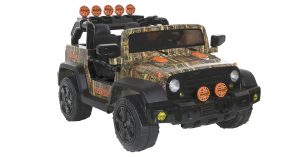
Dynacraft Ride-on Toys recalled 20,000 battery-operated ride-on toys after reports that the pedals were not working in 2017. Always check for product recalls before you buy any holiday toy. Photo credit: Consumer Product Safety Commission notices.
Battery-operated ride-on toys may look like fun holiday gifts. Parents and grandparents even have their choice of models, including the Jeep, Mercedes-Benz and Lamborghini to name a few.
Shoppers can get easily caught up in the “cuteness” factor. It’s not that simple, though. Ride-on toys can be heavy and motorized. Be cautious when buying, even with push or pedal ride-on toys, because you are trusting these toys to support your child.
The Consumer Product Safety Commission (CPSC) has been working to improve safety for ride-on toys, because children have suffered injuries and even deaths. In 2016, three children died in riding toys in toy-related injuries, all encounters with motor vehicles (Source: CPSC). Riding toys, motorized and non-motorized, were associated with the highest number of toy-related deaths that year – or 43 percent.
Before you buy, please step on the brakes and consider our safety tips.
Potential Harm: Motor Vehicles and Fires
Why are riding toy cars so dangerous? The greatest danger is children can be hit by adult-sized vehicles. But motorized toy cars can also overheat, as a North Andover family learned last August. A mother had the terrifying experience of having to pull her children out of a toy car, just after smoke started coming from the hood and before the flames. Other potential issues are children can attempt to stand and cars can tip, resulting in head injuries. Remote controls can provide parents a false sense of security. Parents may have more control just pushing their children in a non-motorized toy/
Safety Tips for Buying Ride-on Toy Cars
- Steer clear of motorized, battery-operated toy cars. Consider buying a tricycle or another non-motorized toy instead.
- If you buy a battery-operated toy car, look for the age recommendation. Many of these toys are recommended for children age 2+, which we feel is too young. But the age recommendation is a starting point for many families.
- Check the label to see if the riding toy meets the CPSC’s toy safety standards. In 2016, the federal toy safety standard, ASTM F963, was specifically updated to address overload, stability and restraints on riding toys.
- Check if the toy car has been recalled on the CPSC website.
- It’s not just toy cars. Any riding toy with a motor can malfunction. Last March, the CPSC recalled these Radio Flyer electric wagons due to motor problems.
- Read the product specifications and instructions online before purchasing. Consider whether you have the time for this type of toy.
- Test the riding toy before your child rides.
- Always supervise your children when they ride. Stay on the driveway and sidewalks near your home. Fenced in areas, such as backyards, are best if the product is designed for use on grassy surfaces.
- Protect your child’s head with a bicycle helmet.
- Follow instructions for properly seating your child. Ride one child at a time.
- Find a safe place to park the riding toy. Commit to properly securing it after each use.
- Keep the box. When your child outgrows the riding toy, remove it from your home.
Free Legal Consultation: 800-379-1244
For more than 25 years, Breakstone, White & Gluck has represented those who have been injured or killed by defective products which should have never been sold. This holiday season, our Boston personal injury lawyers are committed to helping consumers make informed buying decisions to prevent toy-related injuries.
Learn more about Breakstone, White & Gluck: www.bwglaw.com. If you have been injured, our attorneys offer a free legal consultation and can help explain your rights for seeking potential compensation. Call 800-379-1244 or 617-723-7676 or use our contact form.
The 10 Worst Toys of 2018
W.A.T.C.H. has released its annual nominees for the 2018 Worst Toys list. The Boston non-profit warns shoppers to steer clear of the following toys this holiday season:
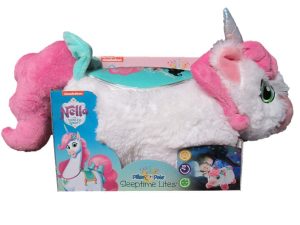
Photo courtesy: W.A.T.C.H. 2018 Worst Toys report.
Nickelodeon Nella Princess Knight Pillow Pets Sleeptime Lites
Parents should never leave infants in their cribs with toys, especially those with small pieces or strings. This toy is marked for ages 0+, for use as a nightlight or bedroom toy. While it does carry some warning labels – warning parents not to leave it in the crib or let children play with it unattended – this isn’t enough to protect children. W.A.T.C.H. cited this and other hazards, including small accessories and a warning about batteries which can leak. This toy is being sold online through Target.com and Google Express, as well as in Target stores.
Nerf Vortext VTX Praxis Blaster
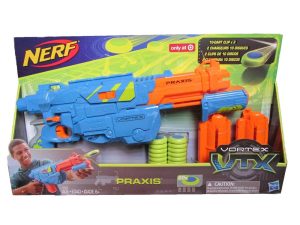
Photo courtesy: W.A.T.C.H. 2018 Worst Toys report.
Nerf toys have received bad press for causing eye injuries. In this case, the Nerf gun is recommended for users age 8 and older and can shoot 10 discs in a row. W.A.T.C.H. calls this a potential hazard for eye and facial injuries. The blaster is sold at Target. Target.com, Amazon.com, Walmart.com, Ebay.com and Bonanza.com.
Marvel Black Panther Slash Claw
These make the list because they can cause injuries and can encourage hitting. The claws are encouraged for children age 5 and older and the packaging states children can “slash” like the Black Panther.” At the same time, the packaging also advises children not to swing at other people or animals and to steer clear of breakable objects. If children use the toy, they are likely to break all those warnings, which is why W.A.T.C.H. included it this year.
Power Rangers Super Ninja Steel Superstar Blade
This is a sword-like toy and made the list for poor taste and the potential for facial and other impact injuries.
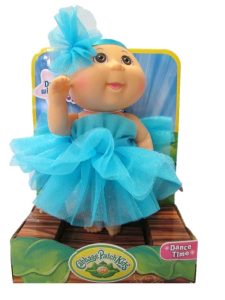
Photo courtesy: W.A.T.C.H. 2018 Worst Toys report.
Cabbage Patch Kids Dance Time Doll
You may think this is a sweet, fun gift. But the toy has a removable headband, which W.A.T.C.H. says can be ingested. The toy is marketed for children age 2+ and is sold at Target, Target.com, CabbagePatchKids.com, Bonanza.com and Blinq.com.
Zoo Jamz Xylophone
This Vtech brand toy made the list for presenting a potential choking hazard. A young child could put the drumstick handle in their mouth and block their airway, W.A.T.C.H. says. The product is designed for children age 1 1/2 to 4 years old. It is sold at Walmart, Walmart.com, as well as Amazon and other retailers.
Nici Wonderland Doll: Miniclara the Ballerina
This pink ballerina and her kitten are not safe, W.A.T.C.H. says. There is nothing wrong with the little girl, but the kitten can become detached and a child could ingest it. A few of the retailers selling the toy: Amazon.com, Walmart and Barnes & Noble.com.
Stomp Rocket Ultra Rocket
This product is for children age 6 and older. Children are supposed to step onto the pedal to launch the rocket. The rockets can go high – up to 200 feet. W.A.T.C.H. recommended parents keep it off their holiday shopping lists this year, saying it can cause serious eye or face injuries.
Cutting Fruit
Magnetic fruit toys with a hard plastic knife are not a safe gift, W.A.T.C.H. says. The set is marketed for children age 2+, even though the knife can be used to cause puncture wounds.
Chien Á Promener Pull Along Dog
W.A.T.C.H. says this toy falls between regulations and safety. Manufacturers can only market toys with strings under 12 inches for use in cribs and playpens. Pull toys don’t have the same restriction and the result is a toy with a 19-inch draw string can legally be sold to children. The age recommendation on this product is only 1-3 years old. There are no safety warnings. It is available on Amazon.com, Magic Beans and Mbeans.com.
More information on the 10 Worst Toys of 2018 list.
About Breakstone, White & Gluck
Breakstone, White & Gluck is a Boston law firm specializing in personal injury and product liability claims. We represent those who have been injured by the negligence and wrongdoing of others. If you have been injured, it is important to learn your legal rights for seeking compensation to cover lost wages, medical care and other financial losses. For a free legal consultation, contact the Boston personal injury lawyers of Breakstone, White & Gluck at 800-379-1244 or 617-723-7676 or use our contact form.
After Kidde Recall, Consumers Are Urged to Check Smoke Alarms
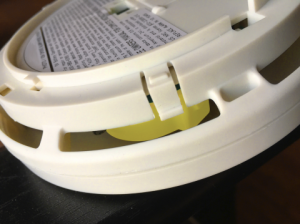
Kidde recalled nearly a half million smoke alarms which may have a dangerous yellow cap left inside. (Recall date: March 21, 2018; Photo: CPSC website)
Please check your smoke alarms when you get home. Kidde has recalled nearly half a million smoke alarms, urging consumers to check devices for yellow caps potentially left on during the manufacturing process. According to the company’s recall notice, the cap would be on one of two sensors inside the smoke detector, compromising the device. Consumers have to do this inspection carefully. You will be looking for the yellow cap through the opening on the side of the device, as shown in the photo. Be careful not to open the smoke alarm or take it apart.
Because Kidde is one of the largest manufacturers, every consumer should check their smoke alarm. If you have a Kidde device, you will need to take it off the wall or ceiling to check the date code on the back. The recalled smoke alarms were dated September 10, 2016 through October 13, 2017. They were sold through January 2018 at Home Depot, Walmart and other retailers. They were manufactured in China, by Fyrnetics Limited, of Hong Kong.
Recall Numbers:
PI9010 (DC/battery powered)
Date codes: Sept. 10, 2016 through Oct. 13, 2017
PI2010 (AC/hardwired)
Date codes: Sept. 10, 2016 through Oct. 13, 2017
Steps for Inspecting Your Smoke Alarm
The Consumer Product Safety Commission recall notice warns consumers not to open the device. Take it off the ceiling or wall, then inspect the alarm through the opening on the side of the device. If you see a yellow cap, you should immediately contact Kidde toll-free at 833-551-7739 for a free replacement. We encourage you to read the recall notice for hours of operation and other information.
Kidde issued the product recall after the yellow cap was found on a smoke alarm which was about to be installed in a consumer’s home. No injuries or incidents reported. Kidde recalled 452,000 smoke alarms sold in the United States and about 40,000 in Canada.
Importance of Smoke Alarms
Smoke alarms are fundamental to safety. Massachusetts has strict laws requiring installation in residential and commercial property. Yet 3 out of 5 home fire deaths in the U.S. are caused by smoke alarm failures, according to the National Fire Protection Association. Nearly 40 percent of these homes had no smoke alarms and about 20 percent had non-working smoke alarms.
Do everything you can to protect your family. Commit to replace the batteries when you set the clocks back or ahead for Daylight Saving Time. Regularly test your smoke alarm batteries every month.
Please share this recall with family members and friends. Offer to help anyone who needs it. In addition to the elderly, check in with college students or adult children who are living in apartments. Also check in with any family members who are new homeowners, still getting to know their appliances.
About Breakstone, White & Gluck
At Breakstone, White & Gluck, our lawyers specialize in personal injury, medical malpractice and product liability cases. Our lawyers are committed to fighting for justice for those who have been seriously injured or killed by the negligence and wrongdoing of others. If you have been injured, learn your rights. For a free consultation, contact our attorneys at 800-379-1244 or use our contact form.


